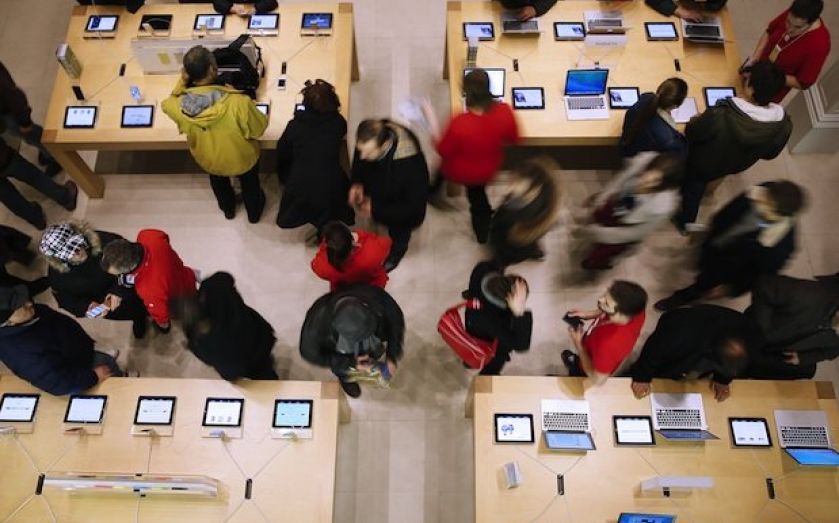France has ignored consumers and the digital economy is bearing the brunt

PRESIDENT Francois Hollande would like us to think that France is about to bounce back. At a press conference yesterday, he detailed plans for a “responsibility pact” with business – a deal to reduce the burden of social levies on companies by €30bn (£24bn) by 2017, in return for businesses pledging to increase hiring and rescue the country’s crisis-struck economy. Public spending would be more closely controlled, and red tape would be tackled.
But for a President overseeing a tax burden of 52.8 per cent of GDP and public spending of 57 per cent in 2013, and for a country that sees corporatist pacts between employers and state as the way to grow, this is far from a revolutionary change of tack.
French leaders still haven’t understood a central insight of the economist Adam Smith. The “sole purpose of all production is consumption,” he wrote. As such, we should only worry about the interests of the producer when it is essential to that consumer interest. Ignoring this harms the whole French economy – but the problem has become most obvious in the digital sector.
Take the treatment of Uber, a new way to book a limo ride on your smartphone. After protests by Parisian taxi drivers (facing competition from a dynamic new service), a directive was issued insisting that would-be passengers must wait 15 minutes before entering the booked vehicle. Not only is this absurd, it’s a clear example of the capture of the regulatory system by producers.
It goes further. France has considered a tax on iPads. Since people watch foreign programmes on such devices, the argument is that they should be taxed to finance the “digital transition” of French cultural industries. This apparently makes sense to some, despite the existence of taxes and subsidies (France already has cultural levies on cinemas, broadcasters and internet service providers) being all the proof needed that no one wants to watch these domestic productions. But the interests of artistes will obviously triumph in a country where the Head of State’s affections vacillate between a celebrity journalist and an actress.
What these and other myriad stories (Amazon will likely be restricted from offering free delivery to protect bookshops, for example) show is that France has still not grasped this most basic point about the economy: it should maximise the wealth and living standards of consumers, and no one else.
After the editor of this newspaper wrote an article pointing out the problems the French economy faces, the French embassy in London responded with a rebuttal, saying complacently that France has “embarked on a serious reform programme which addresses precisely the elements” mentioned. There is, however, one matter on which I agree with the embassy: the French health care system is indeed better than the NHS. This is why we’re copying it, of course. It has multiple providers, all competing to service the needs and desires of consumers, exactly as Smith would have the entire economy work. The real oddity is that France needs to make the rest of its economy like its health care system, while Britain needs to make the NHS more like its economy.
Tim Worstall is senior fellow of the Adam Smith Institute, and author of Chasing Rainbows: Economic Myths, Environmental Facts.